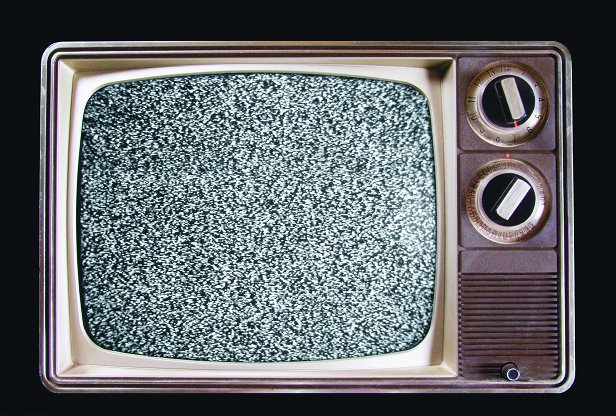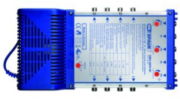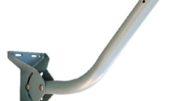On July 3, which seems like about ten years ago, stations owned or operated by Nexstar Media were blacked out on DIRECTV. At that time, I would have put money on the idea that the blackout would be solved in time for the first kickoff of the NFL season. Now, I’m writing this article in the morning of September 8, and who knows – there’s still time for things to improve before Sunday. But I have a feeling that this moment will pass and Nexstar stations, of which there are about 200 across the country, will remain dark on the country’s largest pay television service.
Over on the other side of the business. Spectrum and Disney recently announced that they weren’t able to come to an agreement either, leading to not only Disney owned-and-operated stations being taken down but also all Disney and ESPN content being blacked out on Spectrum nationwide. This affects all of Spectrum’s 14 million pay TV customers.
These sorts of channel blackouts aren’t uncommon in the summer, and they generally solve themselves before the fall starts in earnest. This year feels different, though, and here’s why.
Biggest problem: Fall isn’t what it used to be
In past generations, fall was a big deal for television. It’s when all the new shows debuted. Every year, fewer and fewer shows debut in the fall. Streaming apps debut shows whenever they want, and to some degree broadcasters have followed suit. Without the pressure to avoid unhappy customers when new TV premieres, blackouts don’t get settled.
Of course the ongoing writers’ and actors’ strikes do not help the matter. This isn’t the time or the place to talk about why those folks are striking. Let’s just agree they are. And, it’s meant that pretty much all scripted programming for the fall is off the schedule. A few shows were completed before the strike, but very few. Reality competition shows just don’t bring in the ratings the way that prestige scripted shows do. And, as a result, fewer people complain about missing them.
The third leg of this perfect tripod is football. NFL football is still incredibly popular in this country. But, it’s not as popular as it once was. Generations have grown up playing soccer instead of football, and the NFL’s reputation has been damaged on both sides by social issues and medical concerns. It doesn’t matter which side of those argument you’re on. It’s meant fewer people watching. That’s a key reason why DIRECTV didn’t want to pay more for Sunday Ticket. They were happy to let Google overspend and not get a return on investment.
The other problem: costs are out of control
A generation ago, I paid about $34 for my satellite TV bill. Today the average person pays well over $100. While inflation on average for the same period has been about 66% total, pay TV costs have risen by about 600% when you combine the cost of traditional pay television with that of the most common streaming apps.
Obviously this is unsustainable. Traditional pay TV companies have been shedding subscribers, largely because of high costs. Faced with ever-increasing defection, pay TV companies have reached the tipping point. They know they can’t just pass cost increases along to customers, no matter how small they are. So they’re digging in.
At the same time, large station ownership groups like Nexstar aren’t seeing the writing on the wall. It’s not just pay television that’s losing eyeballs. It’s all of the traditionally-delivered media outlets. Yet, these companies continue to ask for higher fees despite having lower ratings. They’re just not being rational.
Disney’s unique gambit
There’s a rumor that Spectrum wanted all its pay-TV subscribers to get Disney+ for free. This would have helped Spectrum hold onto traditional pay-TV subscribers, but could have cost Disney tens of millions. It seems like it wasn’t a good deal for Disney, and they balked. Things on that side aren’t likely to change unless Spectrum caves on that demand. Will they? Who knows. They’re emboldened by the fact that Disney has just raised its own prices. That’s going to leave a sour taste in the mouths of customers. Keep in mind, too, that Disney has come under fire this year for failing to deliver any high-quality programming from its film or streaming divisions. People just aren’t likely to pay for Disney+ when there’s nothing new to watch.
When will things finally get settled?
Well, if you’d have asked me two weeks ago when things will get settled, I’d have said it would be this week. Yet here we are at the end of the week and things aren’t settled. This could be a long, drawn-out fight. Once people get used to the idea that they’re not going to get football on their own TVs, they’ll go to a bar to watch. They won’t complain about missing their new shows because, well, there are very few new shows right now.
So, it’s hard to know when things will really pick up. Will lawyers on both sides realize that this kind of thing is bad for the consumer? DIRECTV has already filed a complaint with the FCC, but that body has been intentionally hobbled since 2021. They’re not going to do anything.
If you find that your specific station isn’t available, now is the time to get a TV antenna. About 95% of people live where they can get their local channels for free by putting up an antenna. It’s a one-time purchase that will pay for itself instantly. You can find the best selection by shopping at Solid Signal. If you’re overwhelmed by the great selection and don’t know what to choose, call the experts! We’re here for you at 888-233-7563. Or, just fill out the form below.





